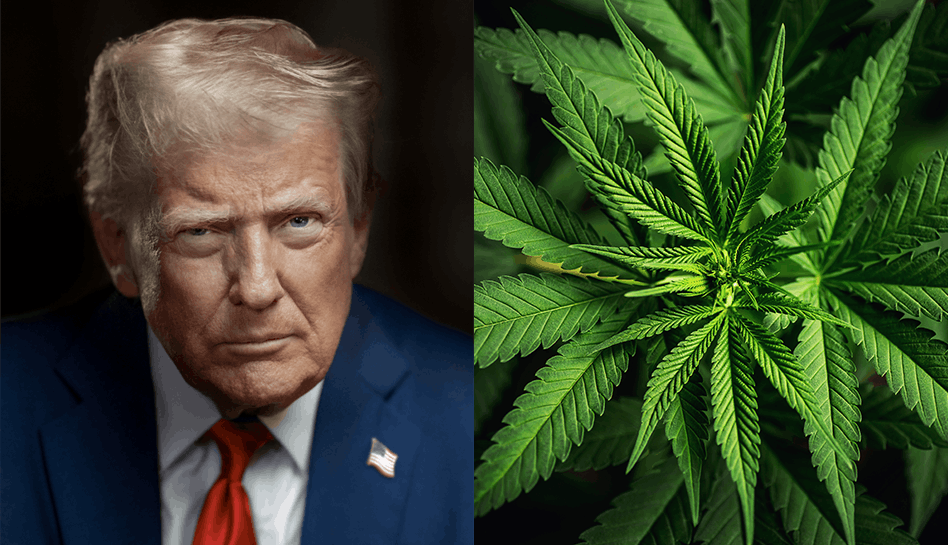Highlights;
-
A group of nine Republican U.S. House lawmakers, led by Rep. Pete Sessions (R-Texas), sent a letter to the Trump administration on August 28 urging the Department of Justice (DOJ) to reject a proposal to reclassify cannabis from Schedule I to Schedule III under the Controlled Substances Act (CSA).
-
The letter, also supported by Smart Approaches to Marijuana (SAM) President Kevin Sabet, was addressed to Attorney General Pam Bondi and copied to President Donald Trump.
-
The lawmakers argued that rescheduling cannabis would send a message that marijuana is not harmful, benefit “Big Marijuana” and foreign drug cartels, and provide illegal dispensaries with tax breaks worth $2 billion annually.
-
Under current Schedule I restrictions, cannabis businesses cannot deduct ordinary business expenses under Tax Code Section 280E, but moving to Schedule III would allow these deductions, which the lawmakers claim would unfairly benefit illegal actors.
-
The letter writers criticized the Biden administration’s proposal as “corrupt and flawed,” stating that cannabis has no scientifically proven medical value and rescheduling it would imply it is safe, which they believe is false.
-
They cited concerns about cannabis’s potential for abuse, claiming a 30% addiction rate and linking its use to increased rates of schizophrenia in young men and rising use among teens.
-
The lawmakers also warned that state-level legalization has led to illegal activities, such as farms being run by foreign cartels and employing illegal migrants, and argued that rescheduling would enable further criminal activity.
-
They urged President Trump to reject the proposal, aligning with his priorities of combating drug cartels and China, and to “follow the science” in opposing cannabis rescheduling.
-
Trump has yet to make a decision on the proposal, which could involve resuming a hearing process, fast-tracking the rule, or initiating a new scientific review, but the lawmakers hope he will scrap the reform entirely.
-
The letter reflects ongoing debate over cannabis rescheduling, with opponents emphasizing concerns about public health and criminal activity, while supporters argue it is a step toward rational drug policy and economic fairness for the cannabis industry.
Nine Republican U.S. House members, led by Rep. Pete Sessions of Texas, have expressed strong opposition to a proposal to reschedule cannabis from Schedule I to Schedule III under the Controlled Substances Act. Joined by Kevin Sabet, CEO of Smart Approaches to Marijuana (SAM), they sent a letter to the Trump administration urging the Department of Justice (DOJ) to reject the proposal. This move is part of an effort to prevent what they believe would be unintended consequences, including tax breaks for “Big Marijuana” and drug cartels, which they argue could send the wrong message to young people.
The letter, addressed to Attorney General Pam Bondi and copied to President Donald Trump, was sent as the administration considers a decision on the rescheduling, proposed during President Joe Biden’s term by former Attorney General Merrick Garland. President Trump, who recently commented on the issue during an August 11 press conference, indicated a decision would be made soon, though his stance has been mixed. While he has expressed interest in exploring medical uses of cannabis, he has also emphasized its potential harm to children.
Rescheduling cannabis to Schedule III could alleviate a significant tax burden on state-sanctioned cannabis businesses, currently restricted by Section 280E of the Internal Revenue Code. This section prevents these businesses from deducting ordinary expenses, a policy some companies, like Trulieve, are challenging through amended tax returns. However, the lawmakers argue that rescheduling would inadvertently provide tax benefits to illegal dispensaries and drug cartels, potentially amounting to $2 billion annually.
In their letter, the representatives contended that Schedule III designation would allow illegal actors to exploit tax write-offs, undermining laws aimed at preventing drug traffickers from benefiting from deductions. They referenced the tax code and expressed concerns about increased drug use and its perceived negative impacts, citing sources like the National Institute on Drug Abuse and news reports. They highlighted statistics on cannabis addiction rates and its potential link to health issues, such as schizophrenia in young men.
Kevin Sabet aligns with Trump’s goals to combat drug issues, noting that rescheduling could hinder these efforts. However, Trump’s conflicting remarks on medical cannabis use add complexity to his potential decision-making. The lawmakers, who reject the medical value of cannabis, argue against rescheduling, fearing it may normalize use and increase accessibility.
This debate reflects broader tensions between prohibiting further cannabis liberalization and recognizing its potential medical benefits. As the administration weighs its options, the outcome could significantly impact the cannabis industry, public health, and legal landscapes.
Source: https://www.cannabisbusinesstimes.com/cannabis-rescheduling/news/15754190/9-us-lawmakers-urge-trump-to-reject-cannabis-rescheduling


